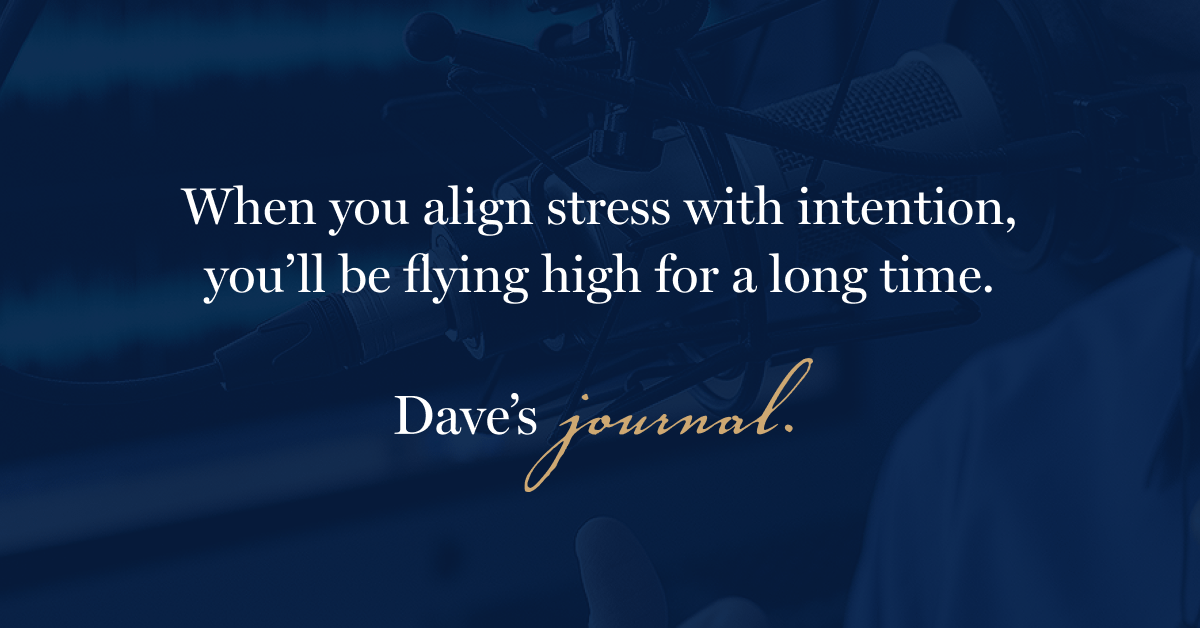Years ago, I was instructing a training course for a group of engineers building fighter jets. During the introductions, several the participants introduced themselves as stress engineers.
I was curious what a stress engineer did, so naturally I asked one of them about it later. Turns out the job involves analyzing the various materials used on the aircraft and then testing how much strain they can handle.
As you’d imagine, figuring this out is pretty important when building an aircraft. If you’ve ever watched out the window of a plane going through turbulence, you know how much a wing can (and should) bend when exposed to stress.
It’s super important that these materials are flexible. If they weren’t, they would have to be so heavy that it would make flight almost impossible. So, understanding and managing stress actually enables flight in the first place.
Think about that for a second. Managing stress enables flight. Otherwise, it would be nearly impossible.
It’s interesting how we accept this reality when building things like aircraft, vehicles, and strutures — but when it comes to our own careers and lives, we view stress only as a problem.
A lot of us view deadlines as roadblocks instead of checkpoints that keep us moving forward.
We get nervous when speaking in front of a large audience instead of thinking about how that fear could be reframed as excitement.
We work towards early retirement, expecting the the excessive stress we take on for the next decade will pay off in some kind of stress-free existence later.
No doubt, just like on an airplane, excessive stress is a problem. If a major medical situations hits, you lose your job, or a crisis happens in your life, those are serious problems that any of us would struggle with.
And, the opposite is also a problem. No stress, no deadlines, no obligations — sure, it’s nice on vacation for a week or two, but over time, even if you could create that reality, it wouldn’t be healthy. All of us know people who’ve tried to eliminate stress from their life (like through traditional retirement) and declined in health and happiness.
Be like a stress engineer. Don’t waste time trying to eliminate stress. Instead, anticipate where it’s likely to come from, notice when you handle it well and when you don’t, and build your commitments to align well with the optimal stress level for you.
When you align stress with intention, you’ll be flying high for a long time.
Dave's Journal is available by audio on Apple Podcasts, Google Podcasts, Overcast, Stitcher, and Spotify.





